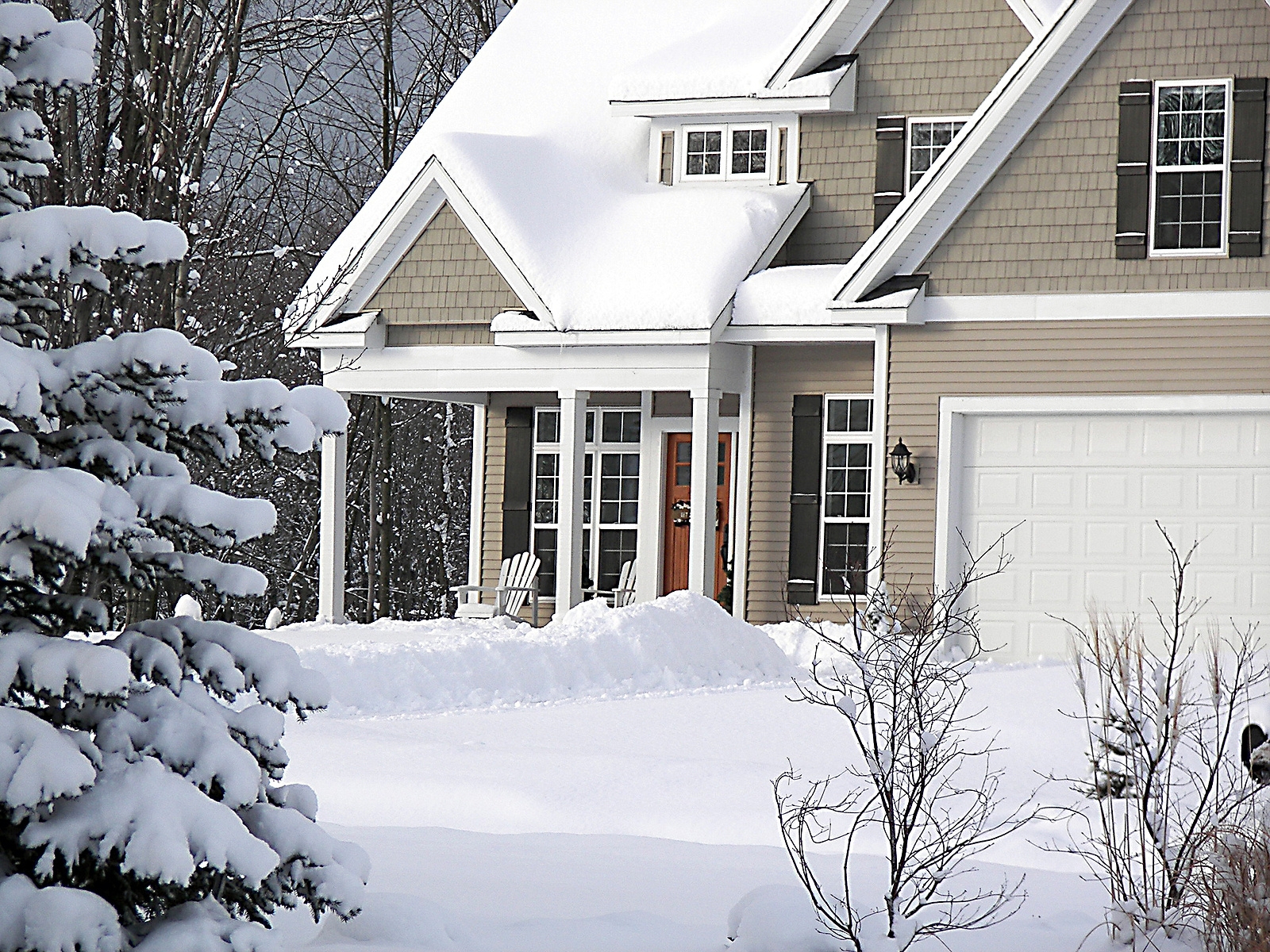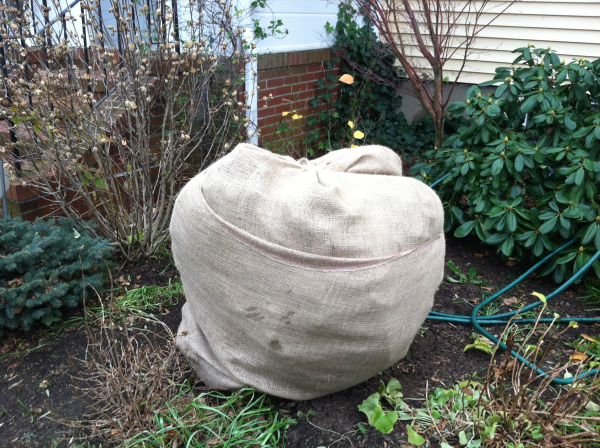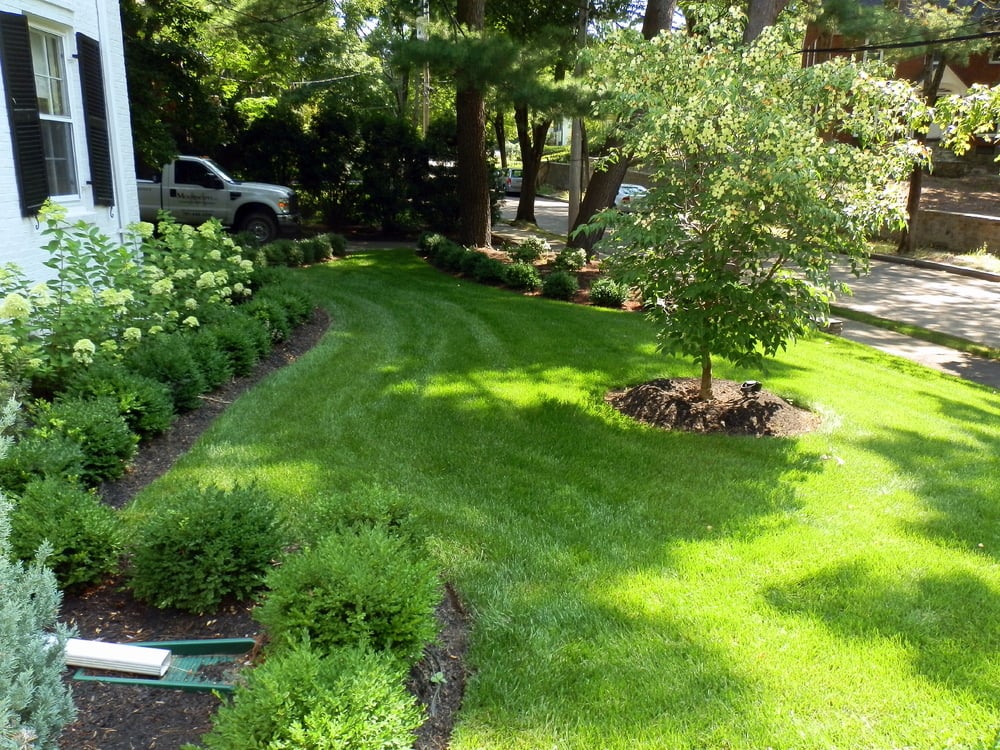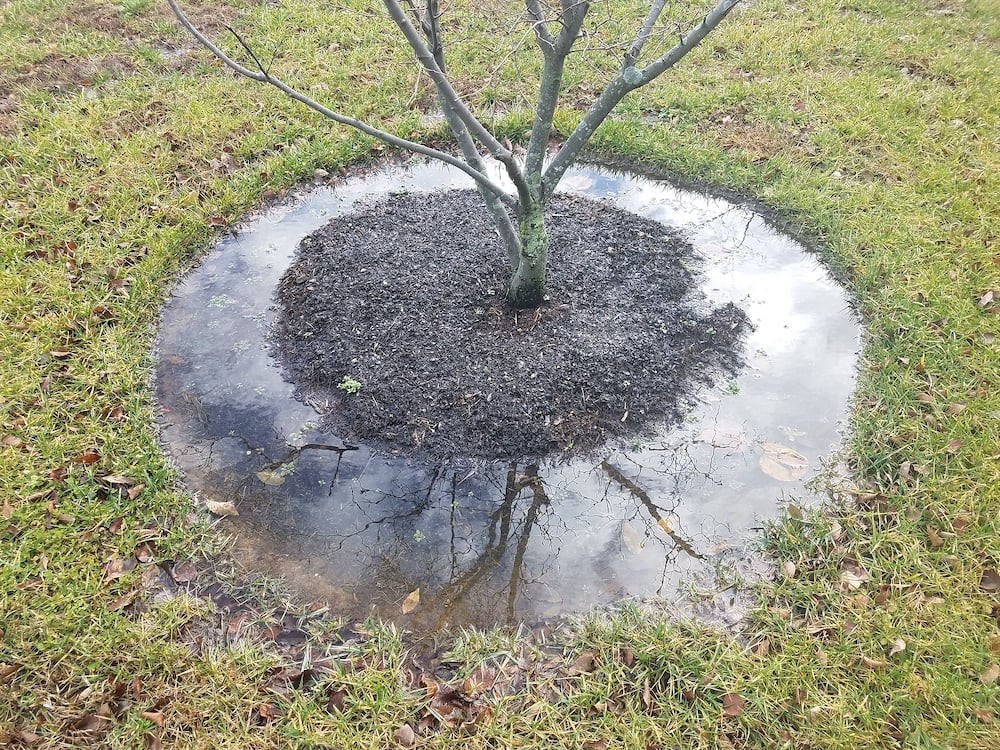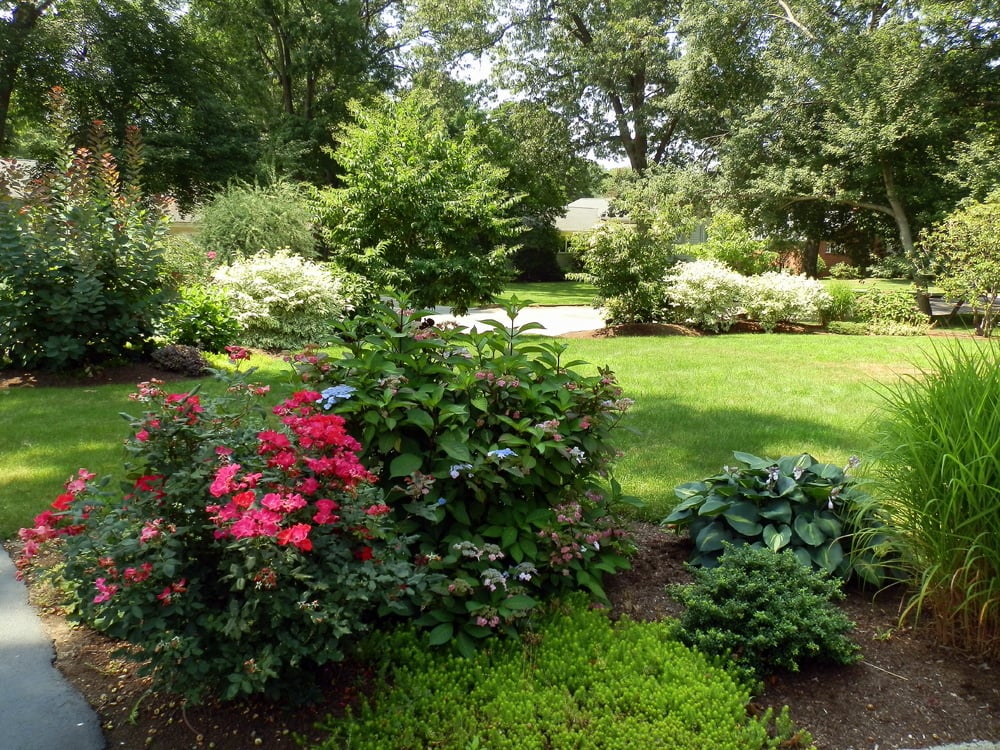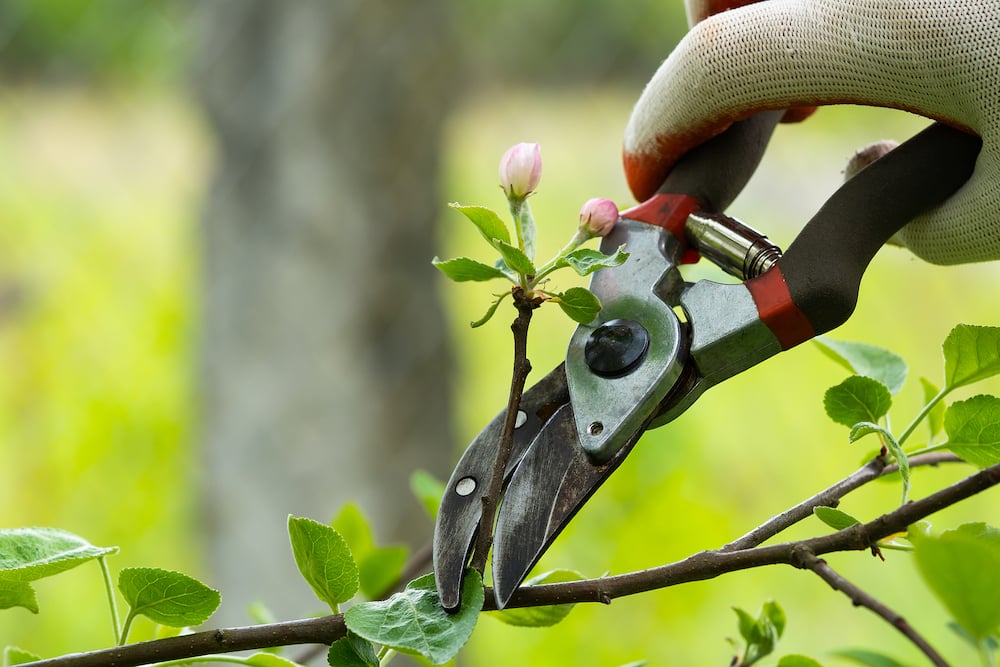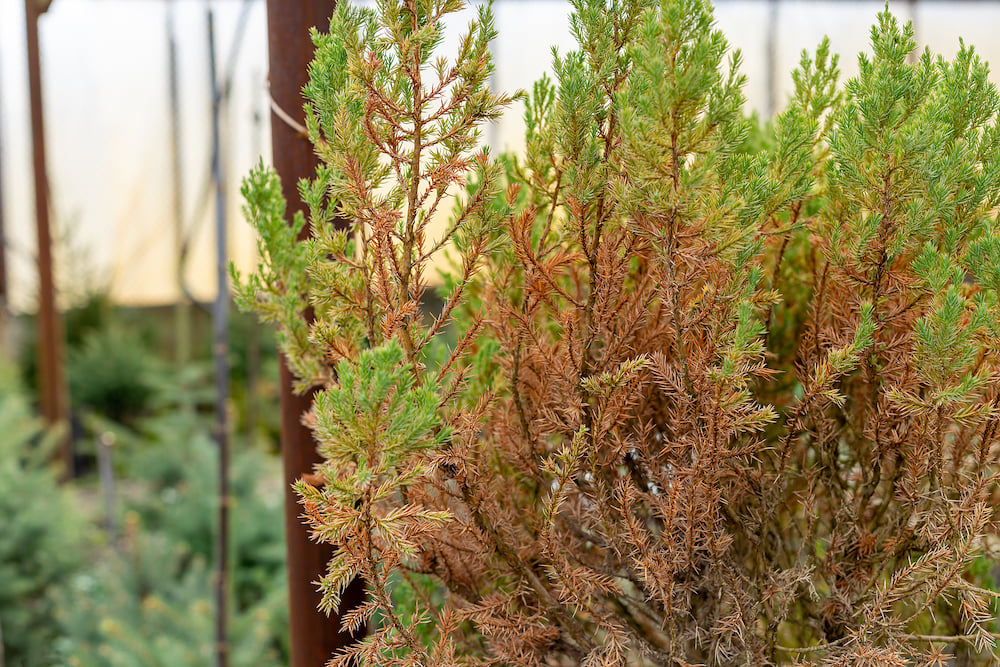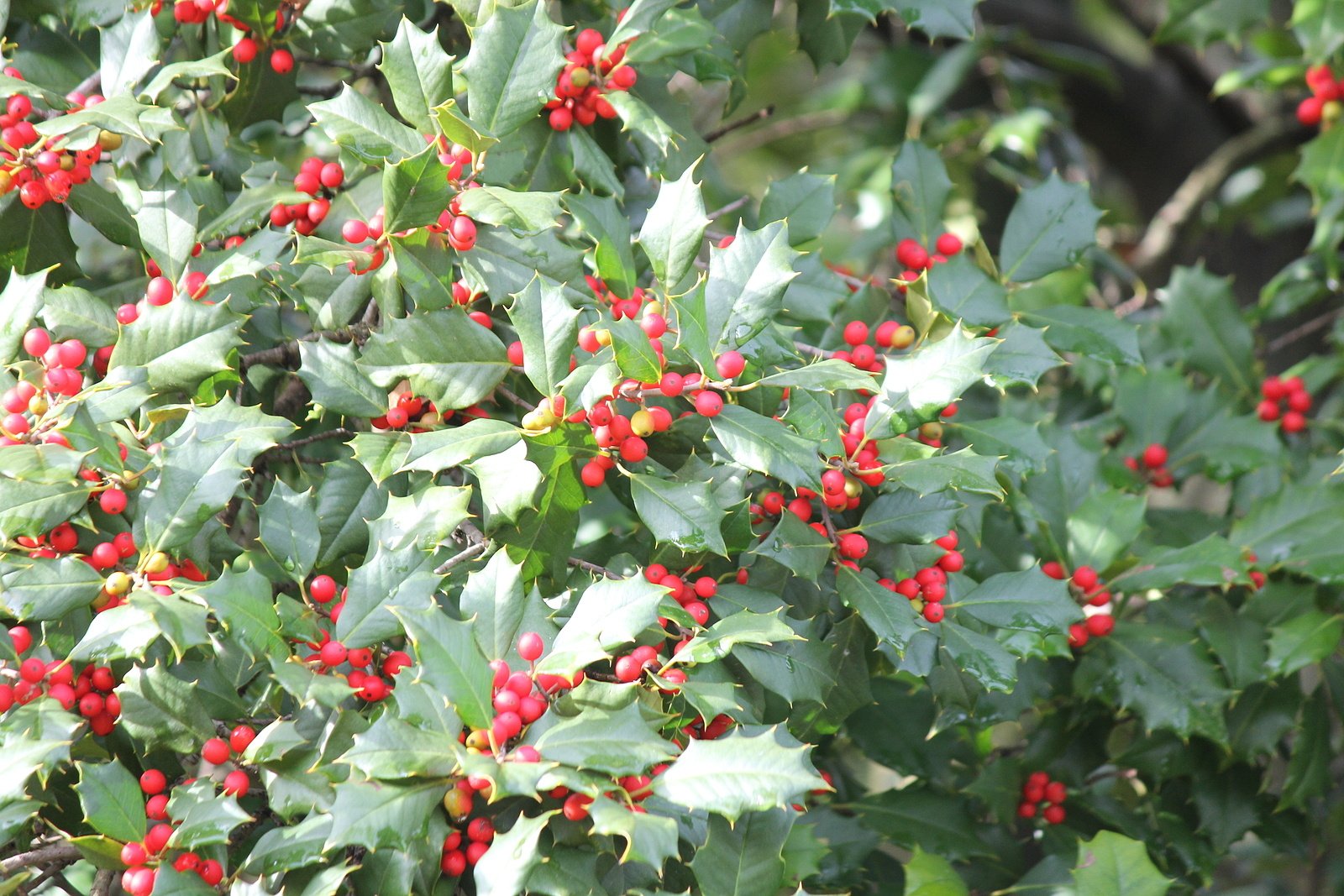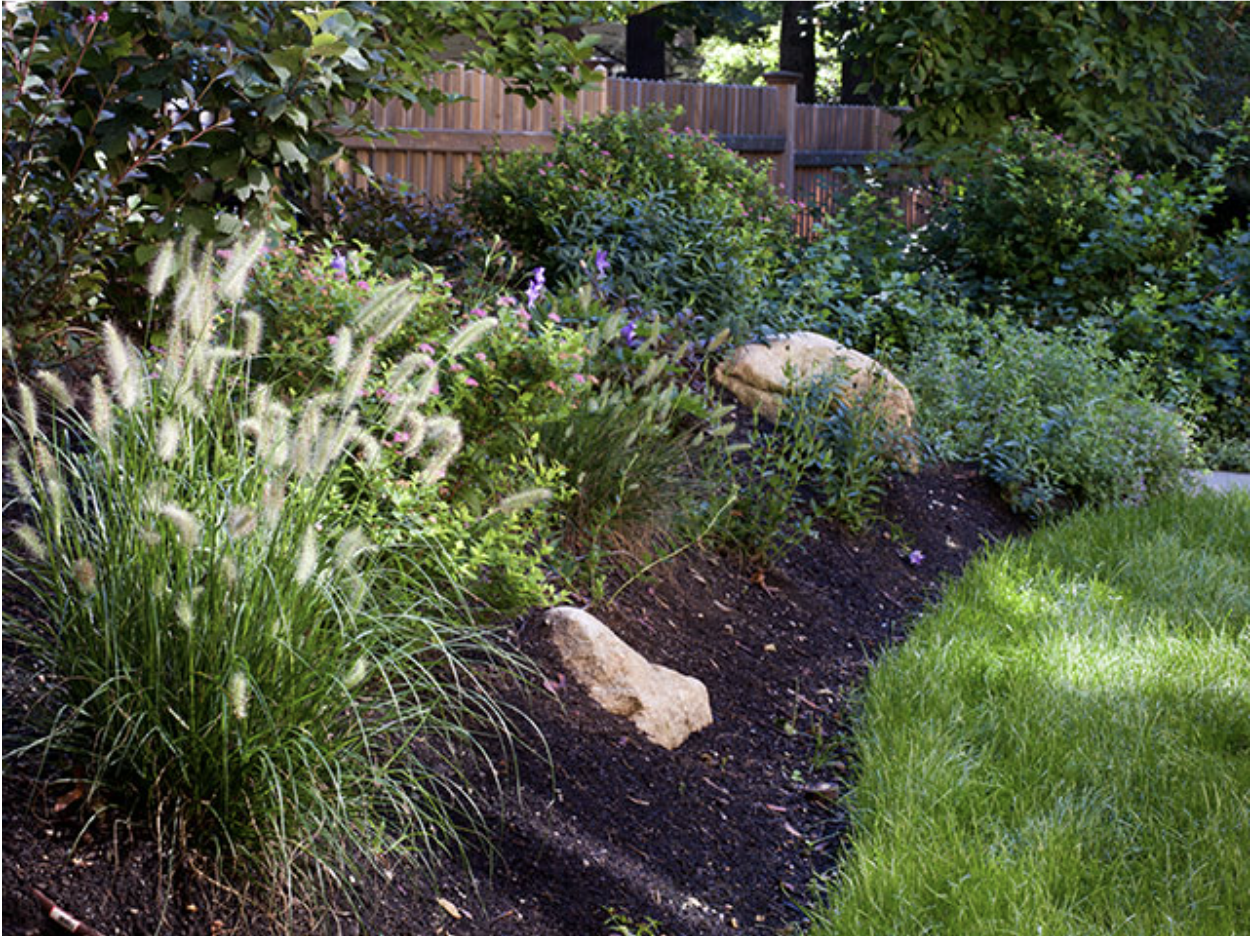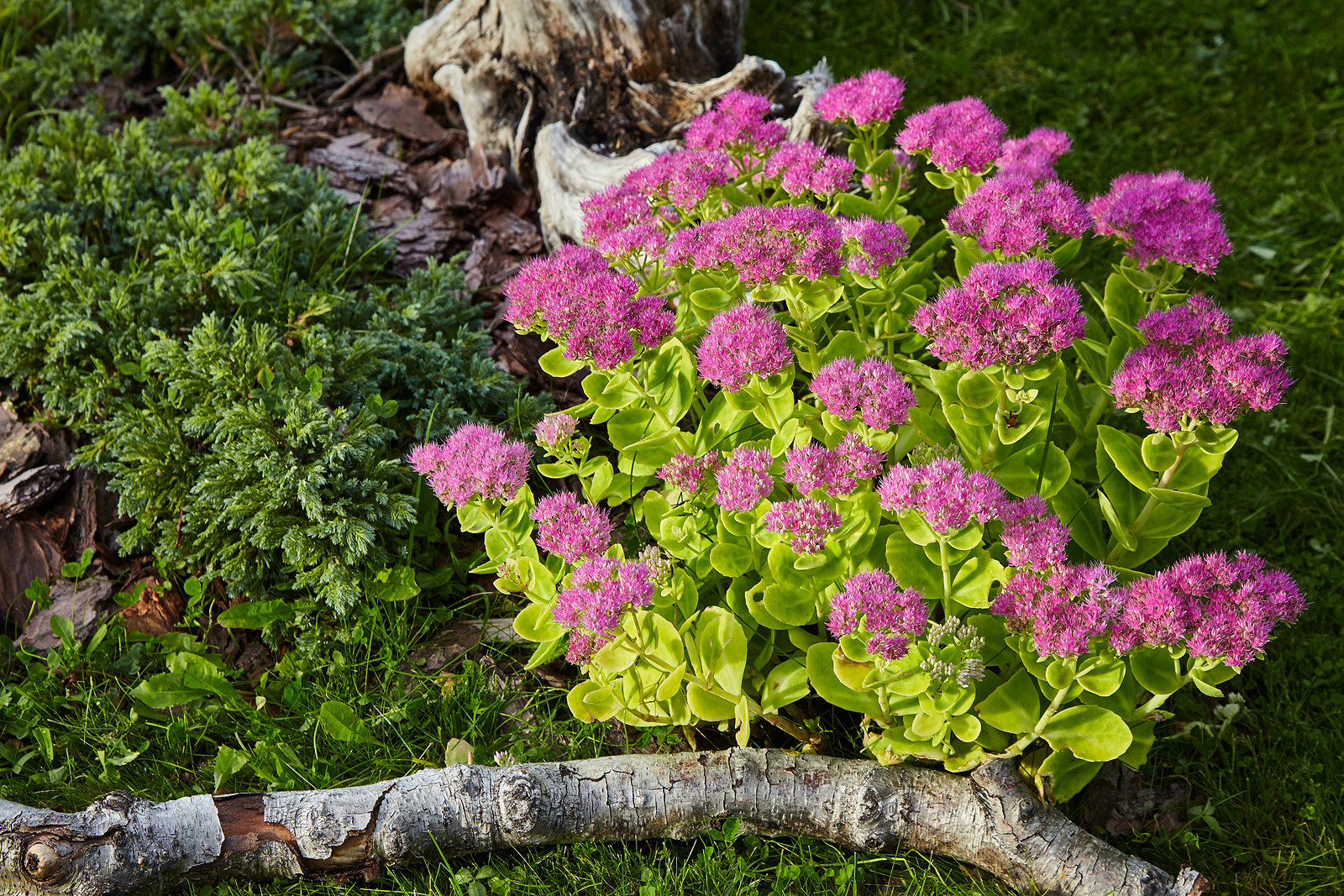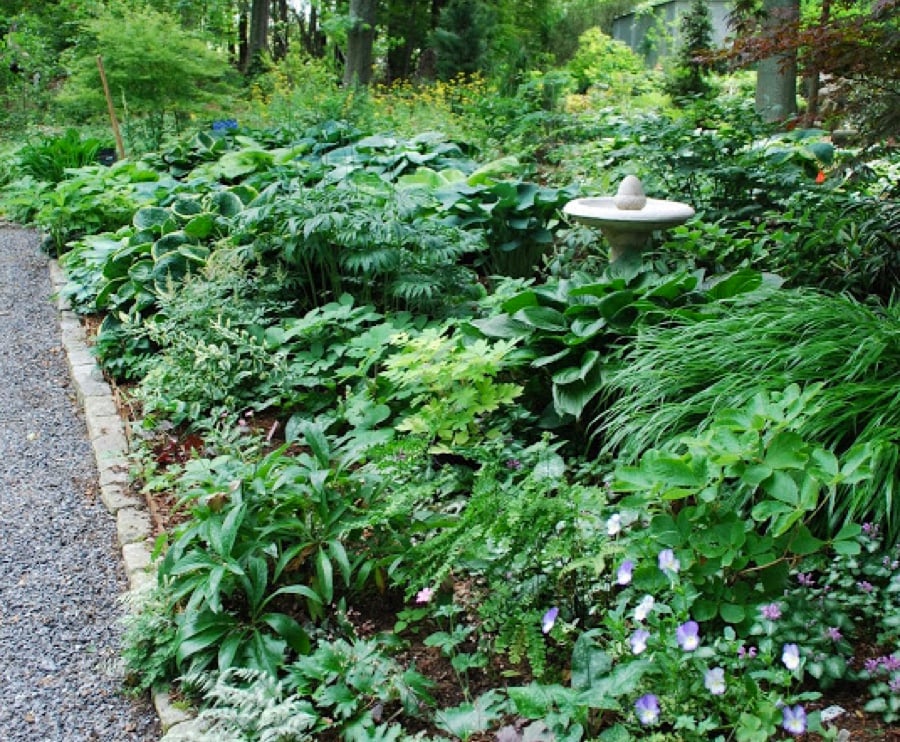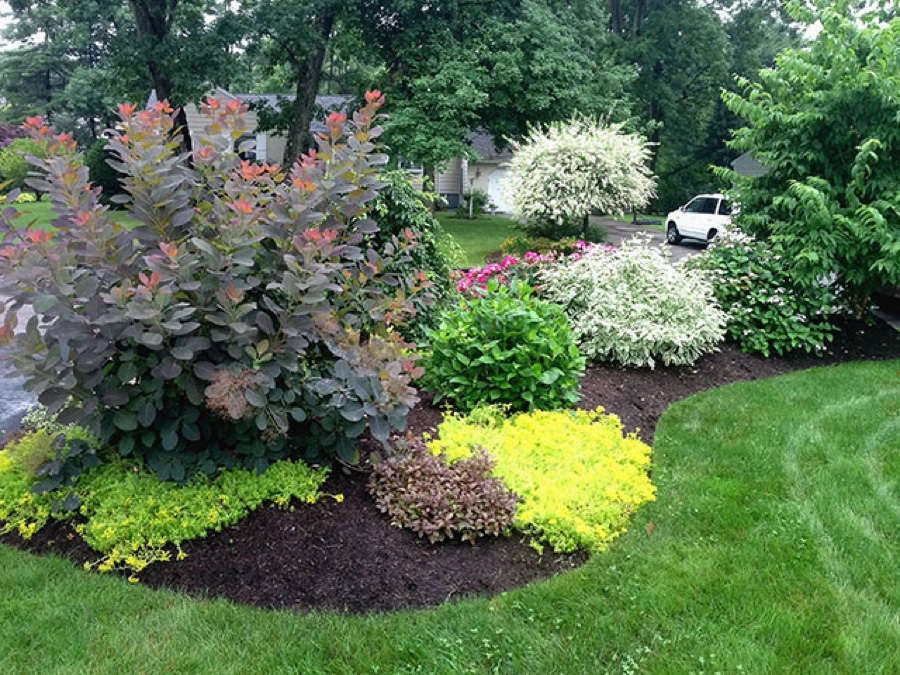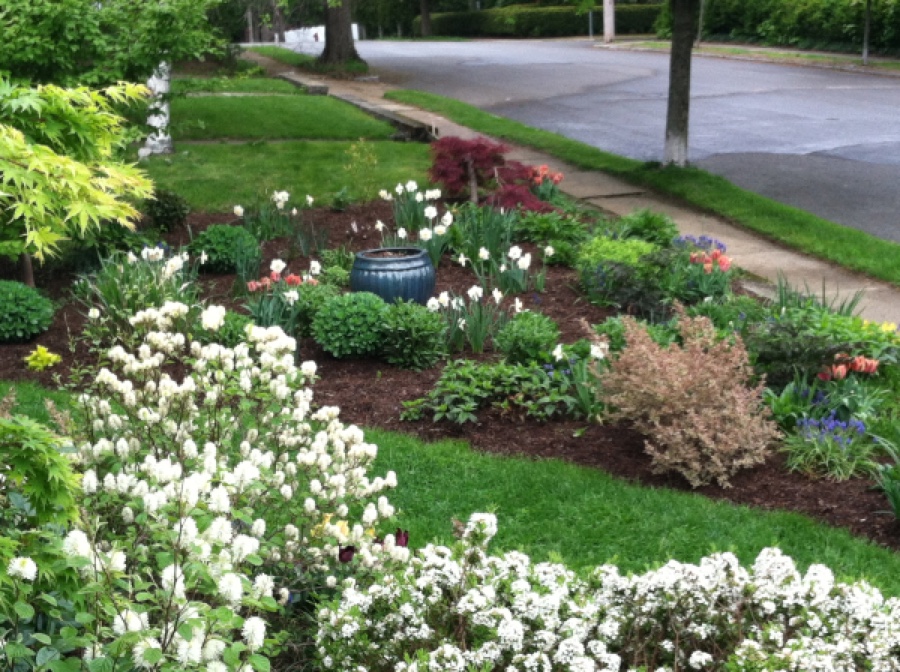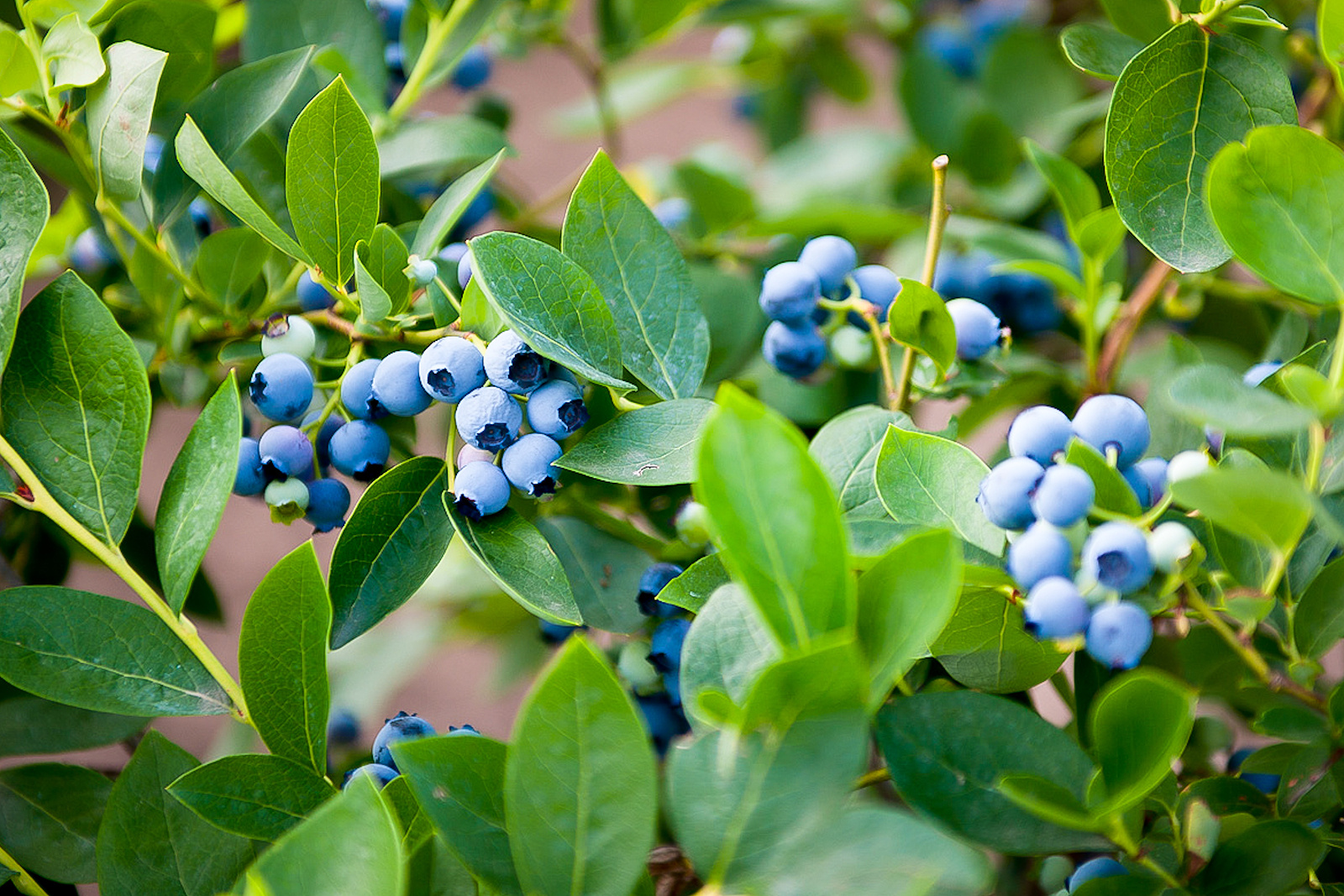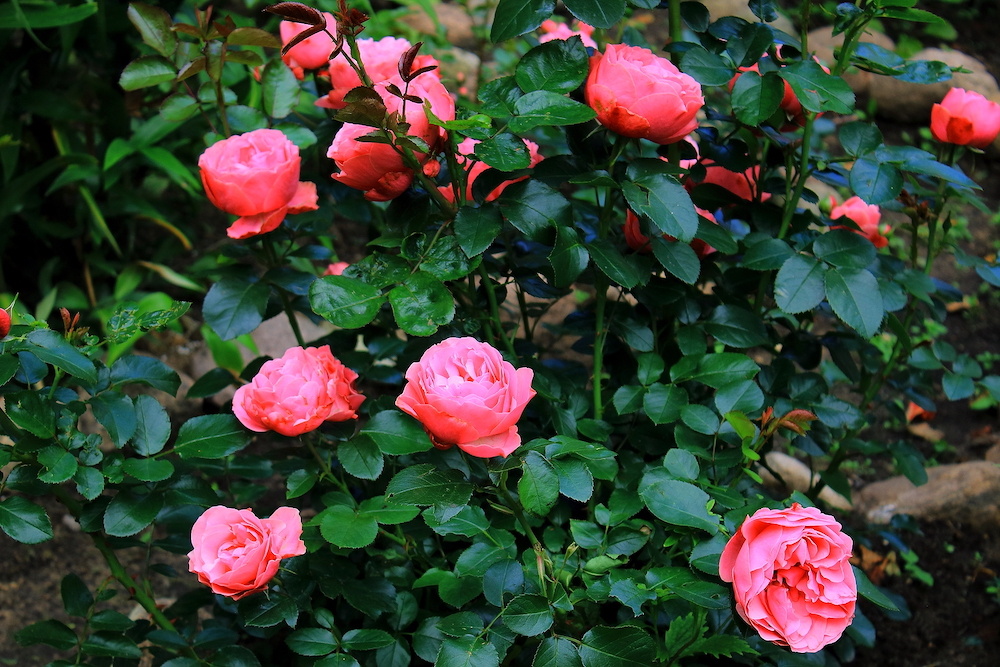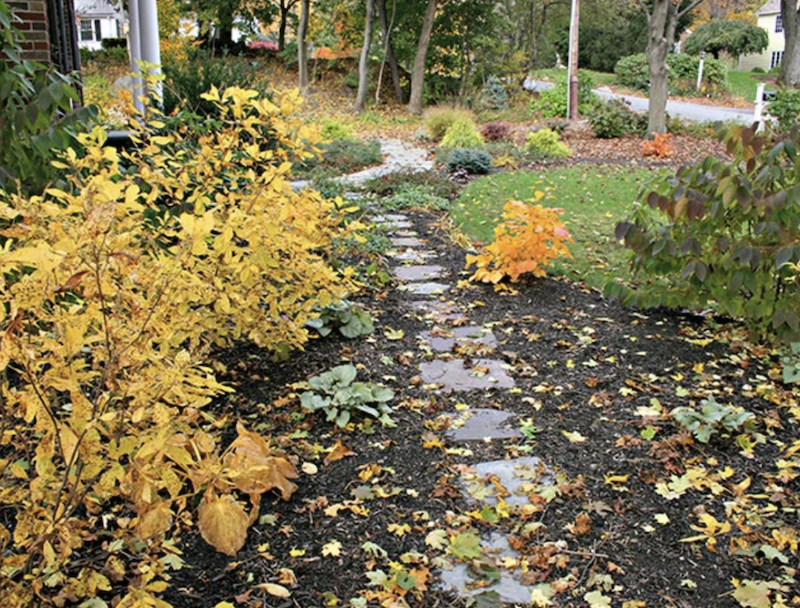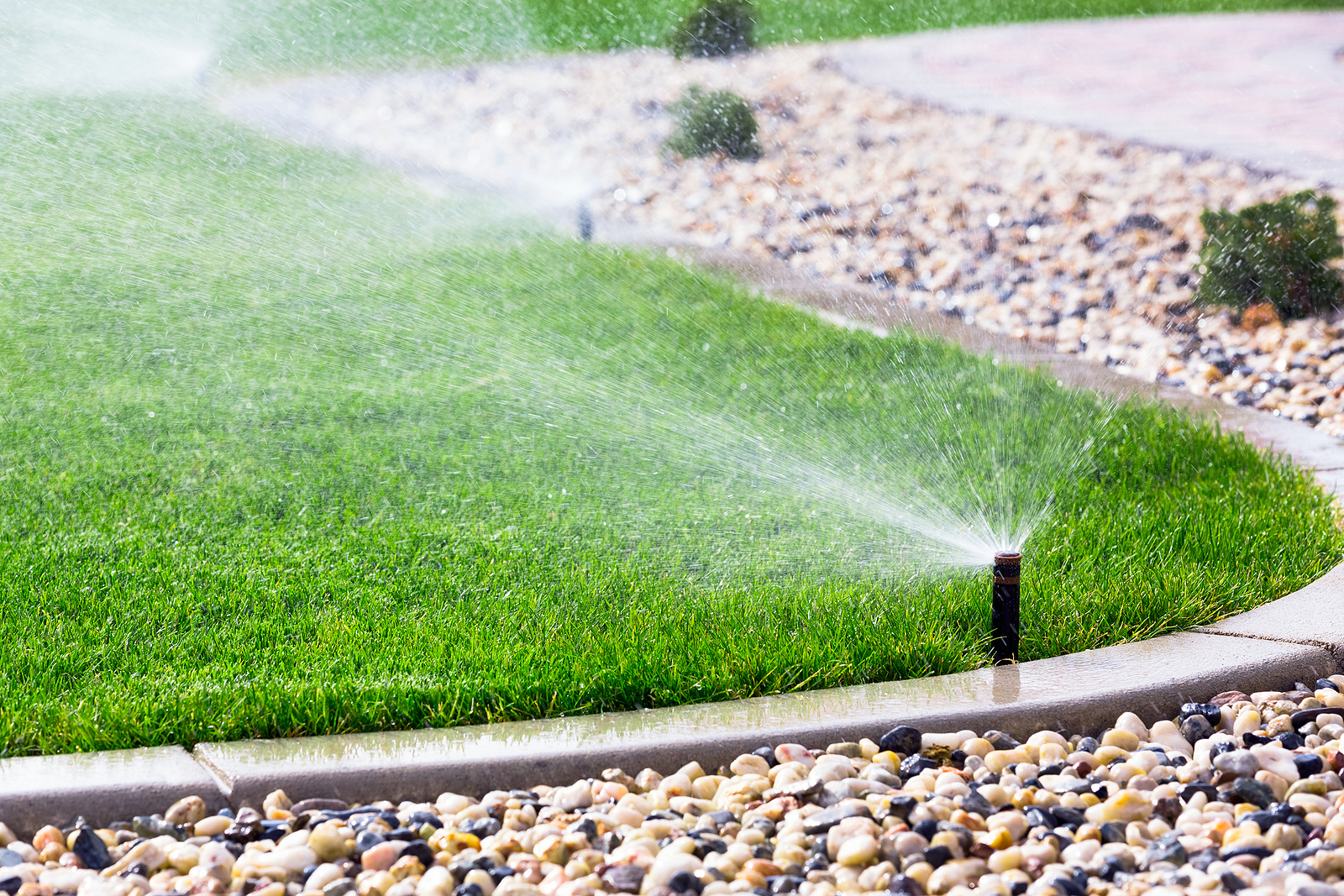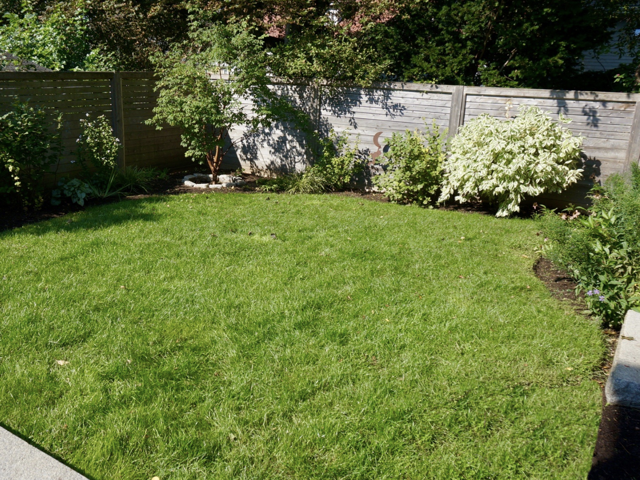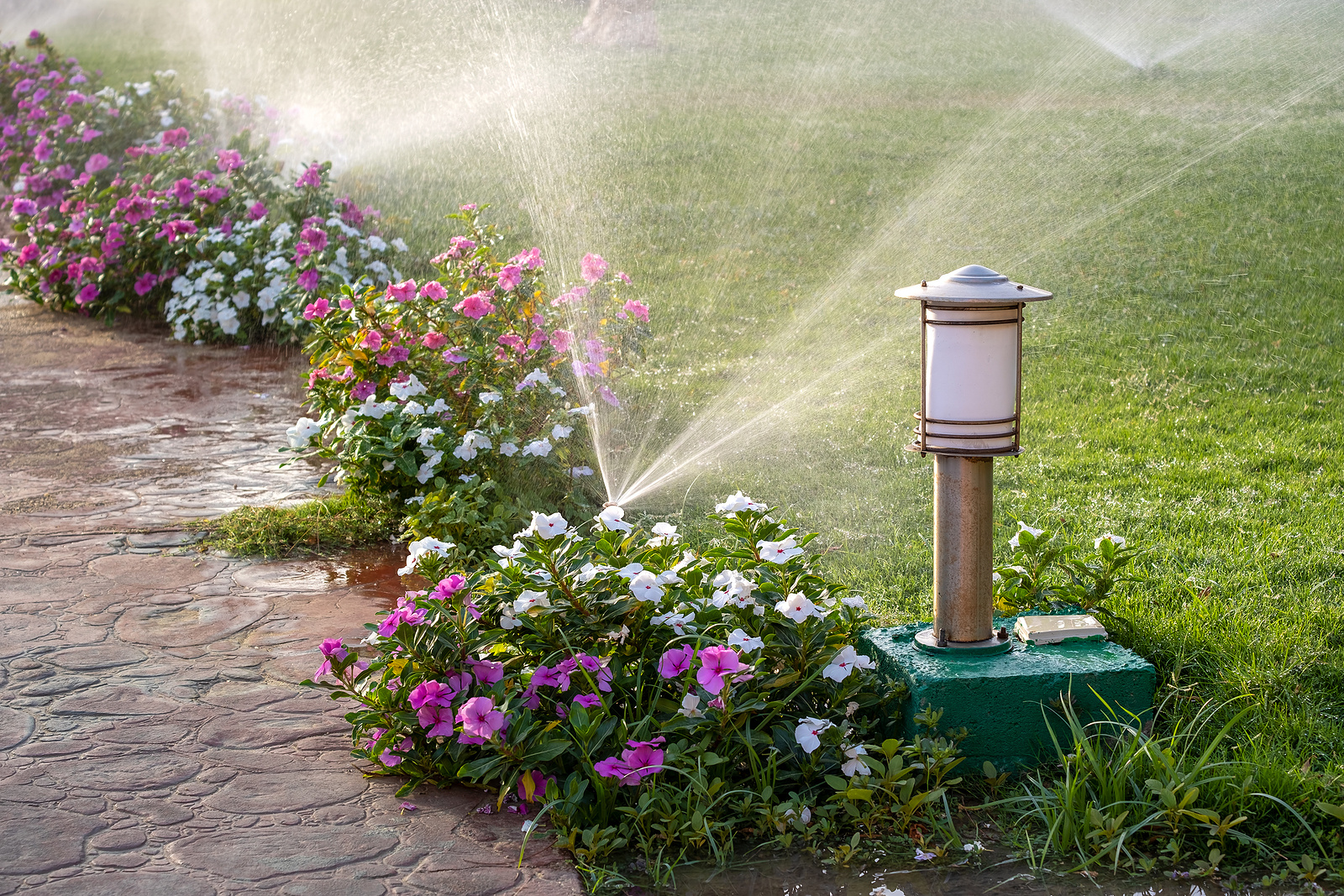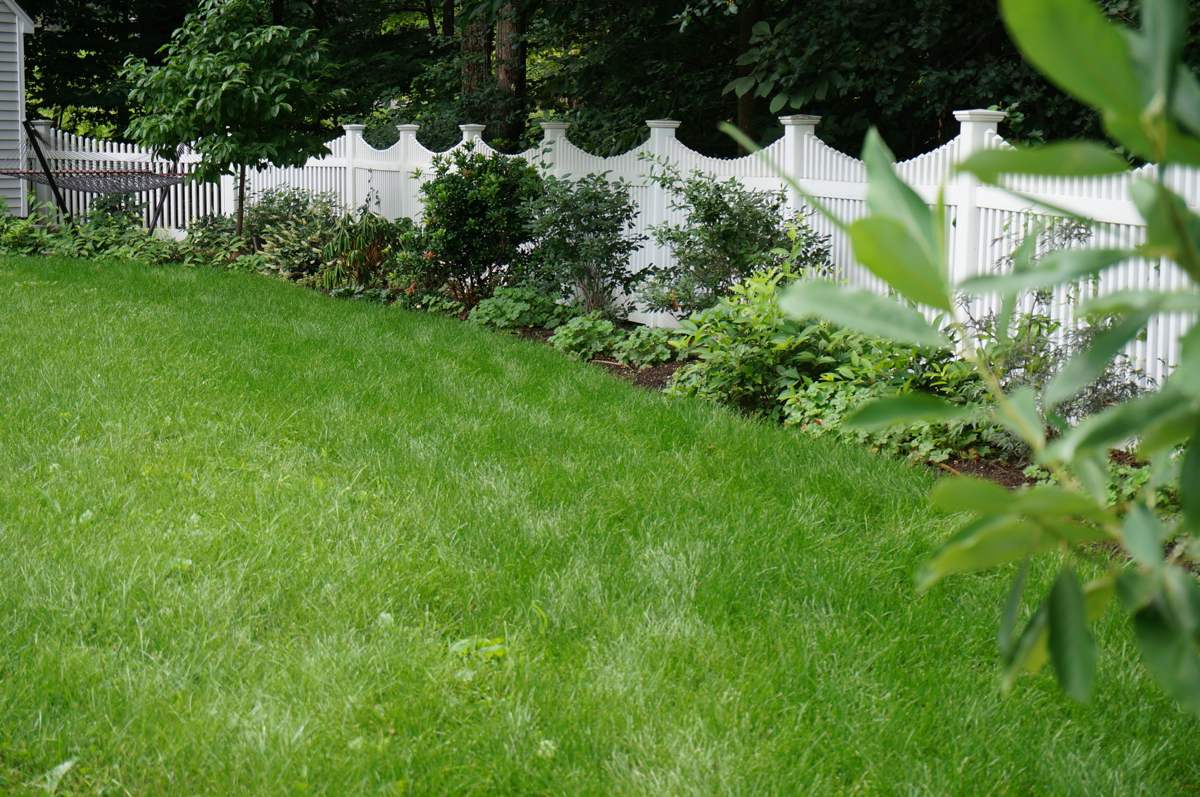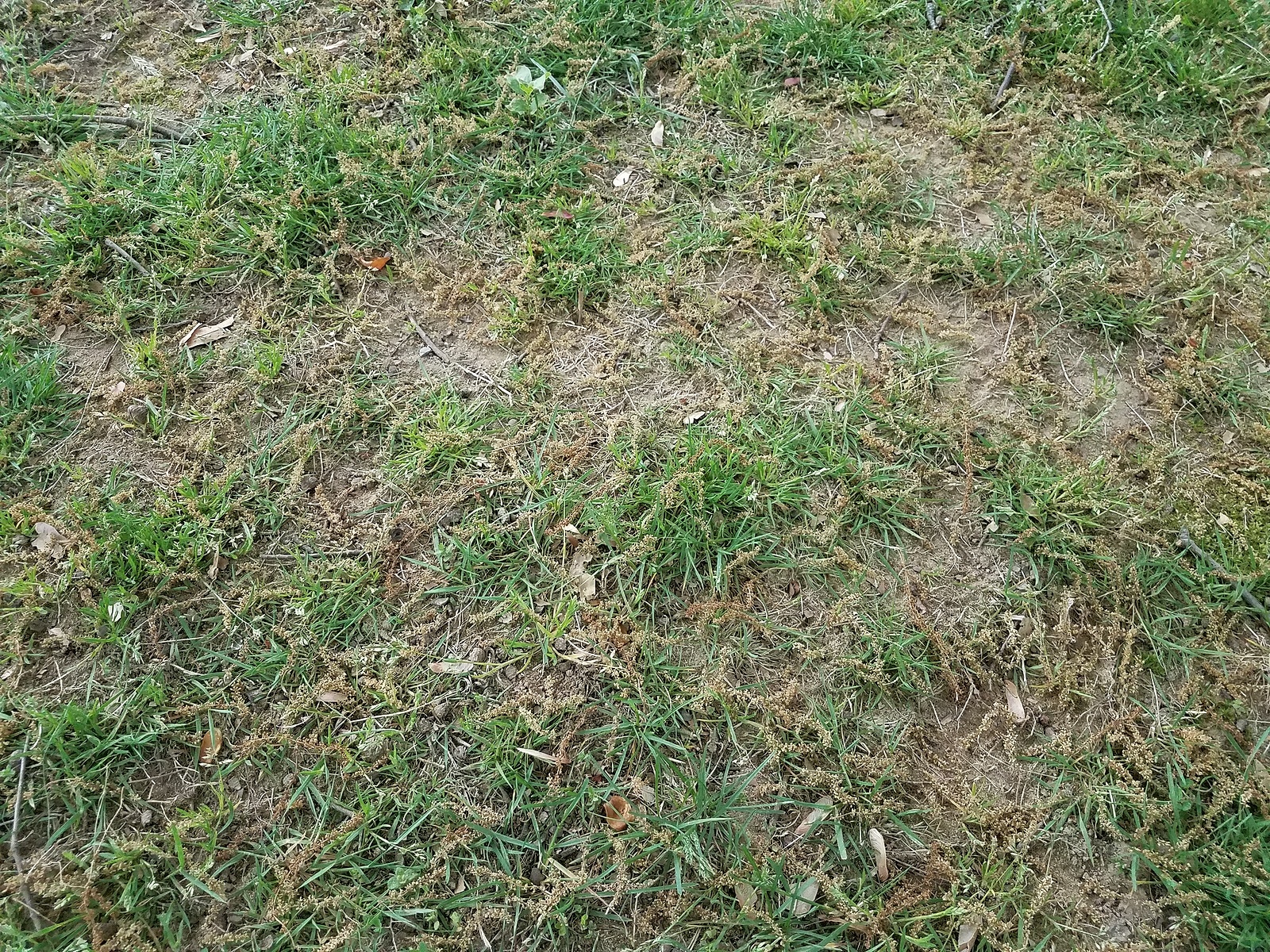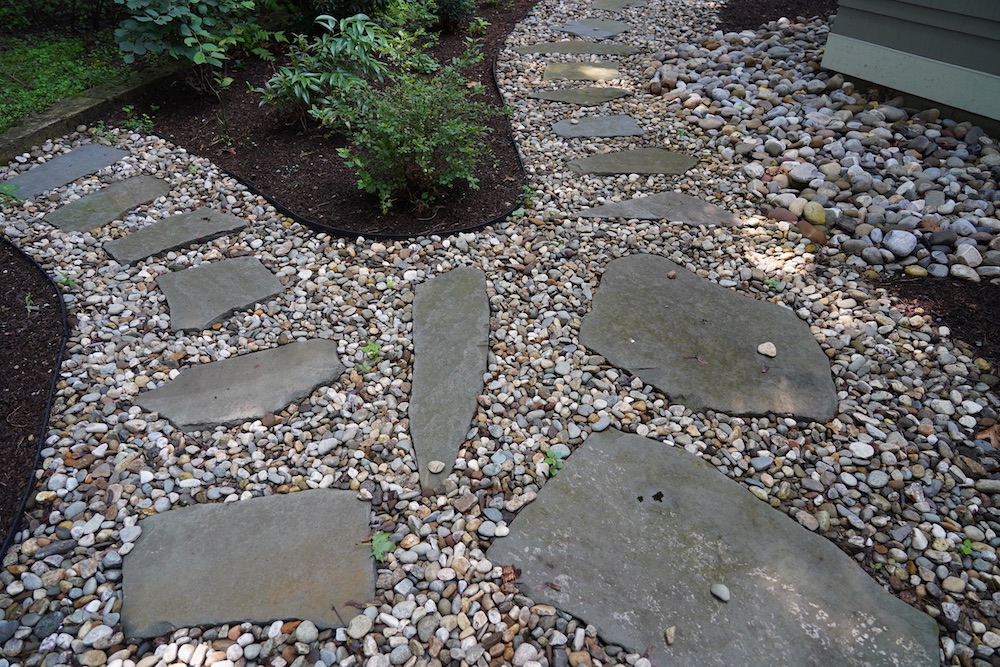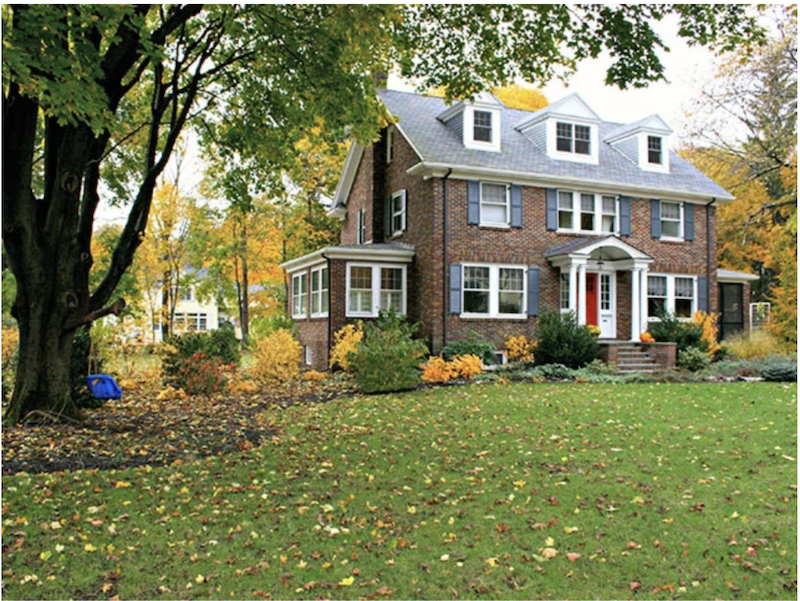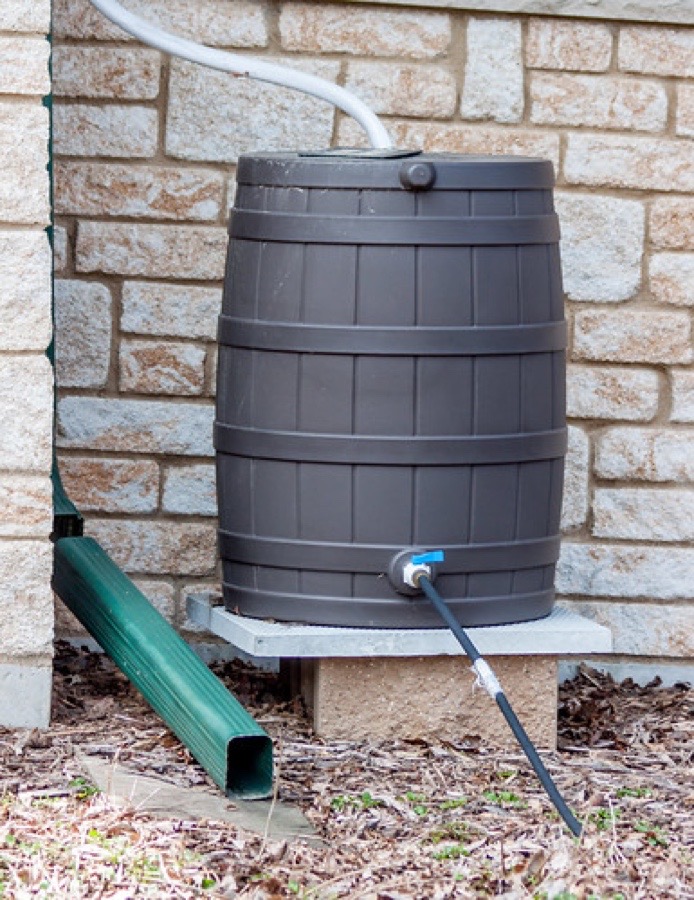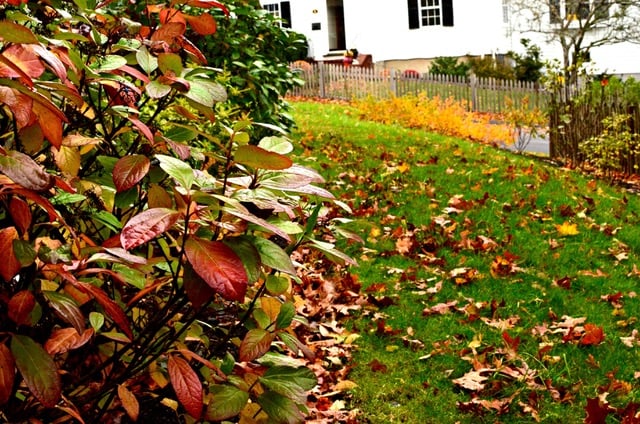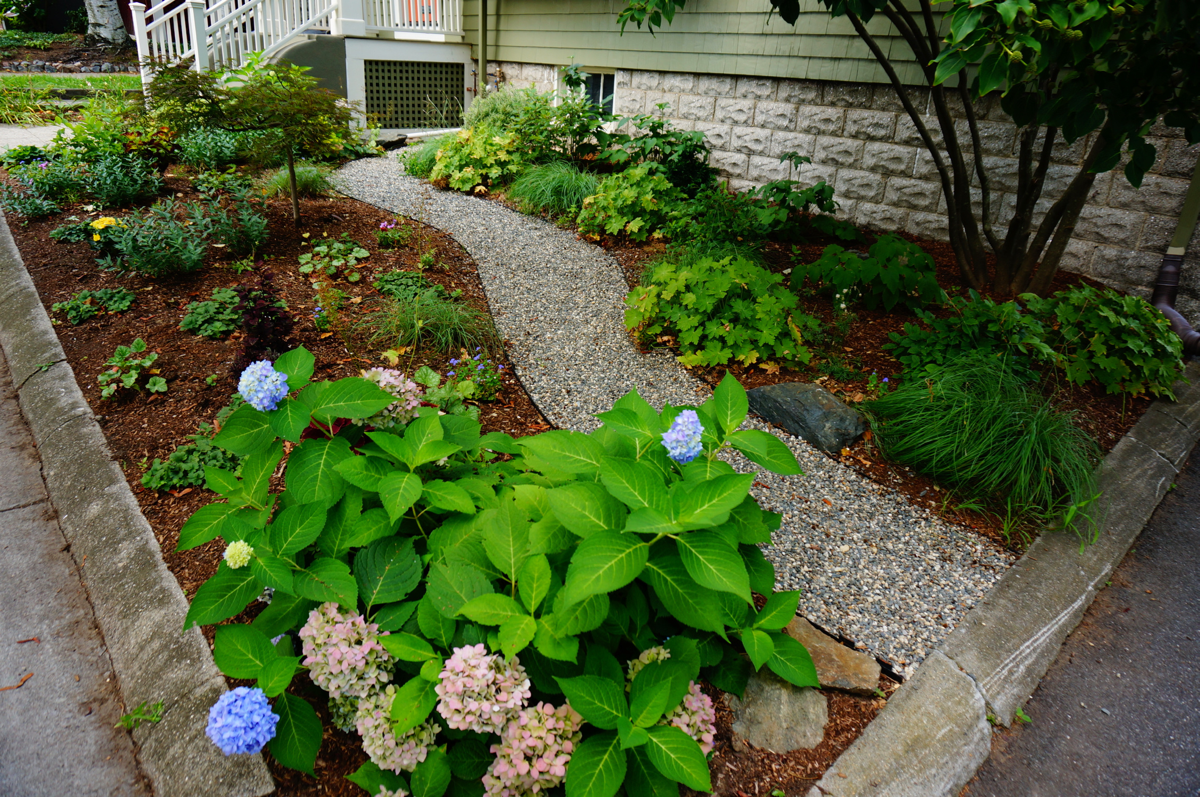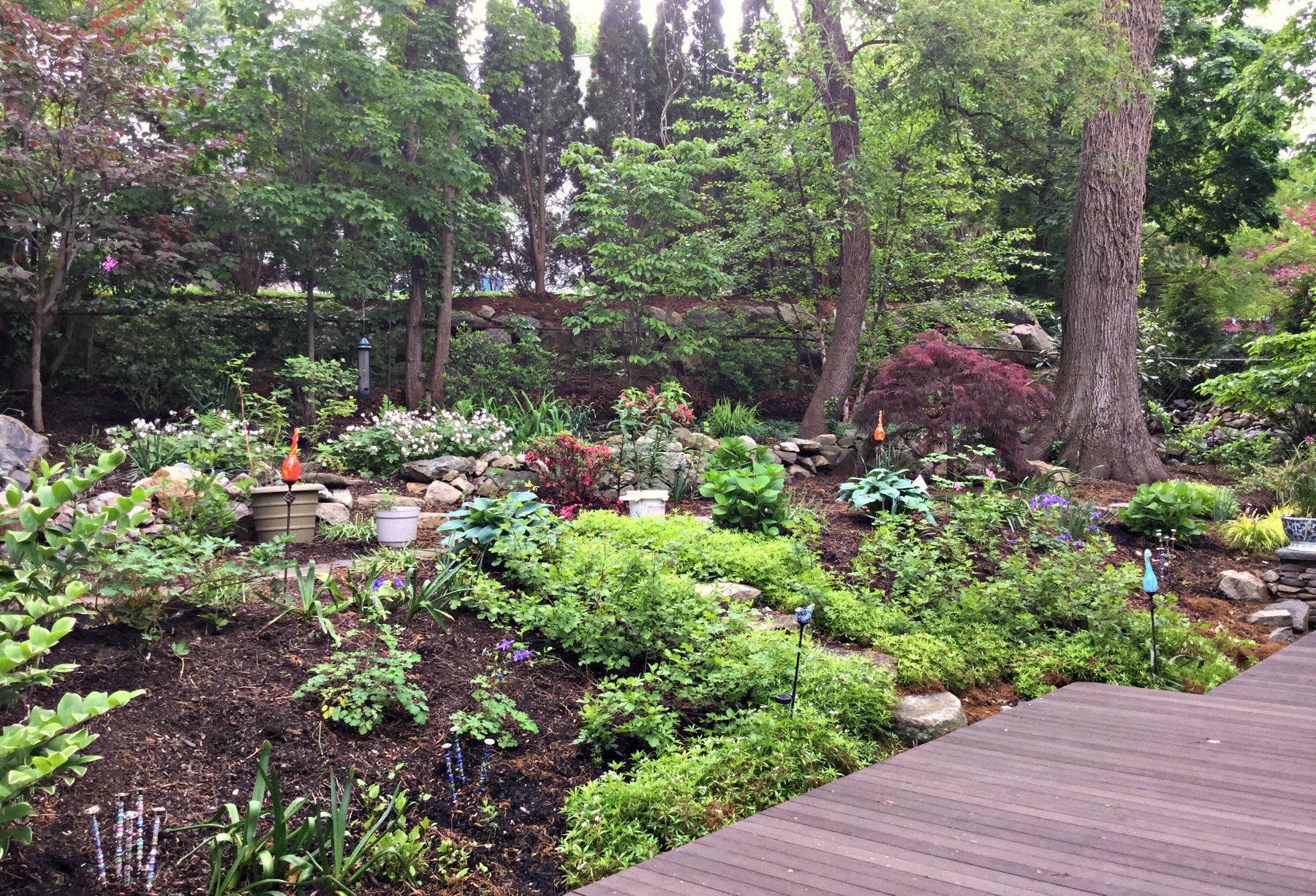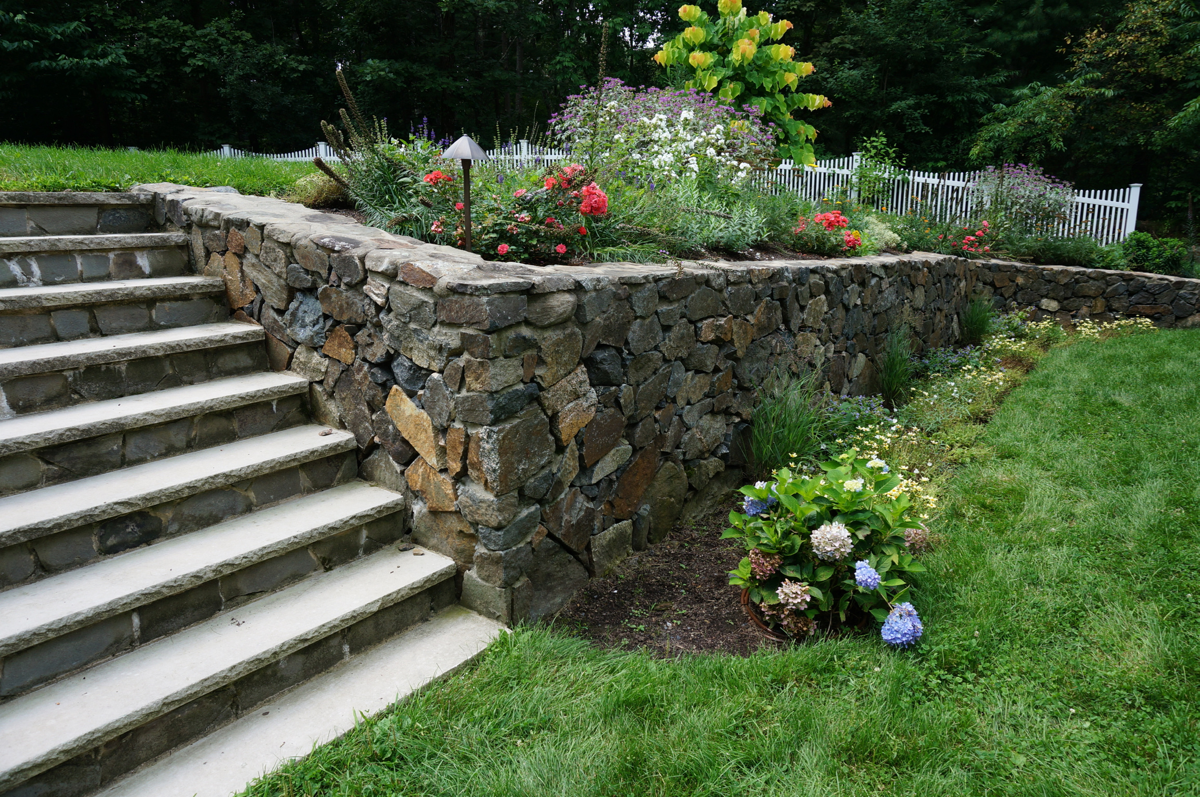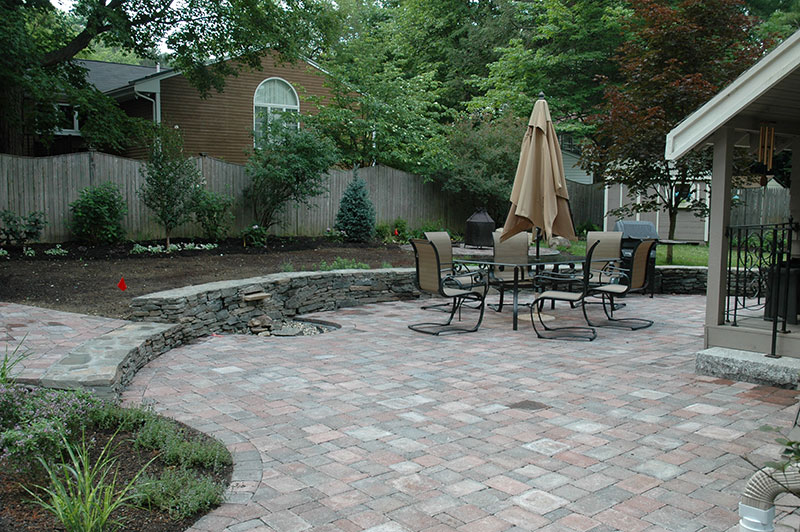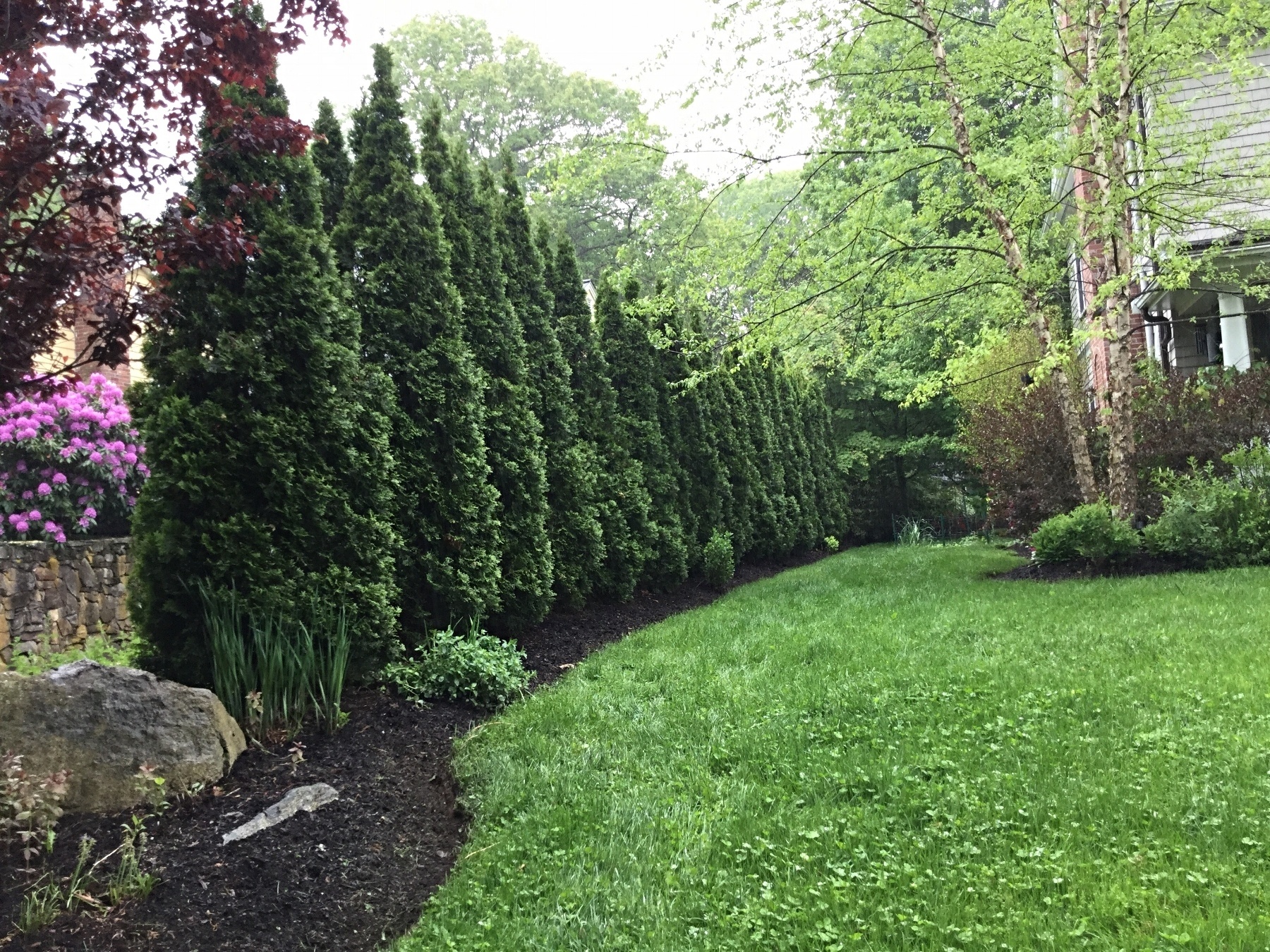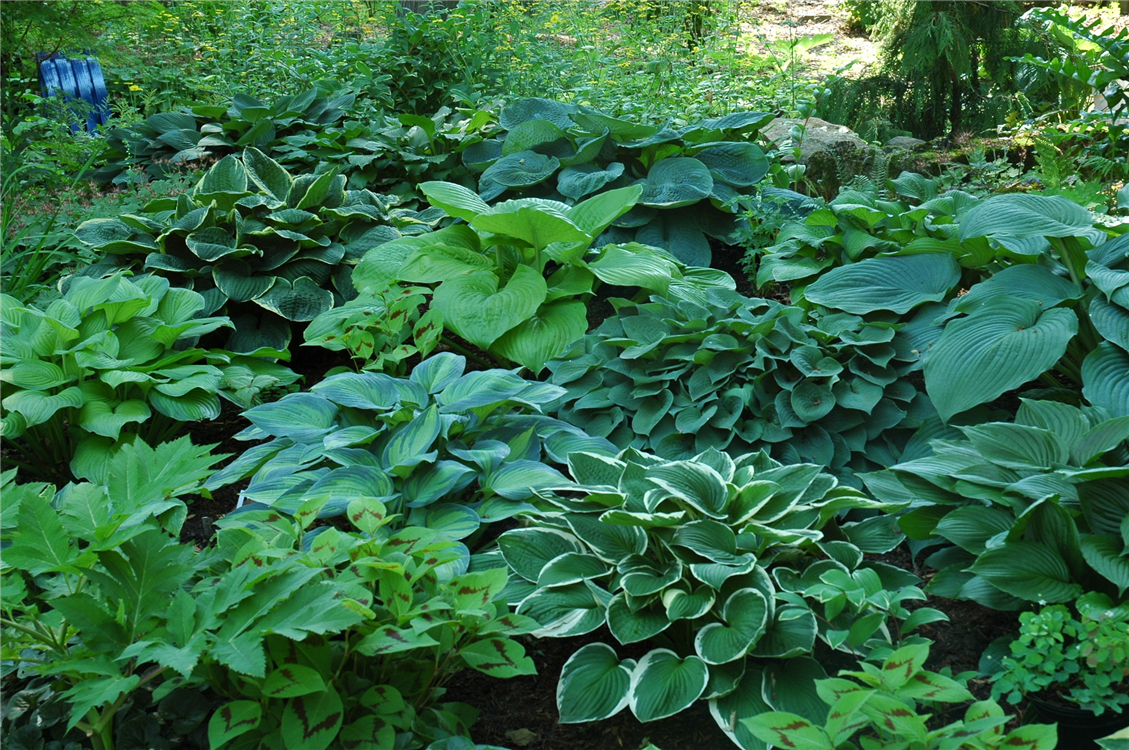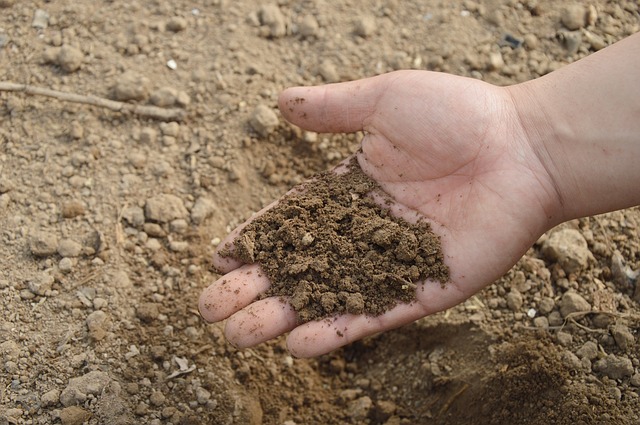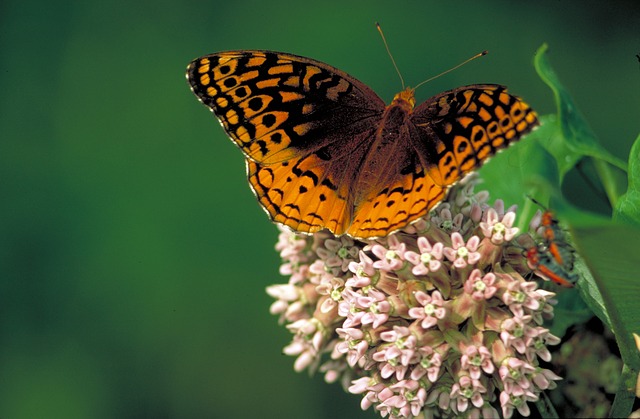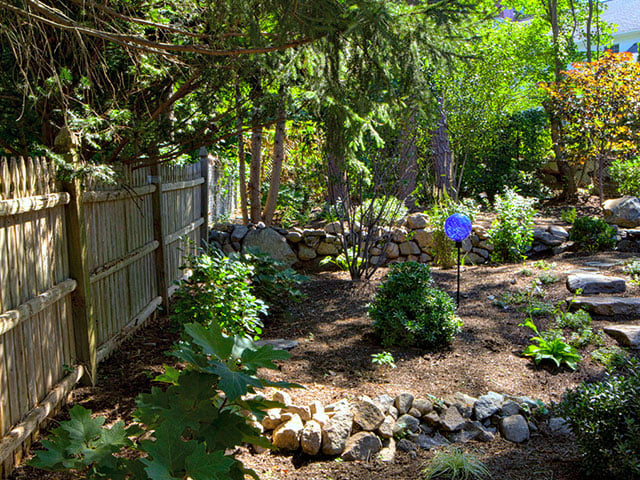Many homeowners schedule their fall yard clean up and consider their lawn care needs met until spring. But end-of-season maintenance shouldn’t stop with the collection of fallen leaves.
For your landscape to thrive in the spring, it first must survive the harsh winter weather. Deep freezes, bitter winds and dry conditions can all wreak havoc on plants and spoil your investment in a beautiful landscape.
Important Tasks to Prepare Your Landscape for Winter
Complete a Final Deep Watering
It’s important that plants enter winter in a healthy state, and hydration is a huge component of plant health. One last deep watering will give your plants a significant opportunity to absorb moisture at the roots before the ground freezes, and achieve all the benefits of hydration.

Adequate moisture helps dissolve soil nutrients, making them easier for plants to absorb. A deep watering before the first frost will also aid plants in growing roots deeper into the soil, increasing their resilience in cold and dry weather. More heat is retained by moist soil than dry soil, so you’ll also be providing your plants with greater frost protection.
Apply a Final Compost
The benefits of applying compost to your plants throughout the year are many, but compost offers special protections for plants during winter. This is particularly true for vegetable and flower garden beds.

Compost can positively affect soil health in a few ways. First, the microbial organisms in compost will contribute to a healthy pH balance in the soil. Second, the nutrients in compost will provide a robust food source for your plants as they break down. Compost also acts as an insulator to protect your plants’ root systems from deep freezes.
In addition, compost is extremely beneficial to the moisture level within your soil. It can simultaneously help your soil retain moisture while also enhancing aeration, thereby preventing root rot.
Protect Fragile Areas
Some of your more sensitive plants, flowers, and trees need to be wrapped for extra protection during the winter months. Using burlap to wrap these plants will provide protection from wind damage, moisture loss, and too much sun.

Plants should be wrapped before the first frost for maximum protection from the winter climate. In Massachusetts, some of the most common trees and plants that are vulnerable and should be wrapped include:
- Small evergreens such as arborvitae and boxwood
- Shrubs including hydrangeas, crape myrtle, rhododendrons, and azaleas
- Perennials like ferns and hostas
- Young or newly planted deciduous trees, including fruit trees
Most annuals planted in New England, such as dahlias, geraniums, and impatiens are difficult to overwinter, but burlap wrapping may assist in transporting them indoors for the winter months.
Mulch Tree and Shrub Bases
A layer of mulch around the bases of your trees and shrubs will help regulate soil temperatures and protect your plants from frost. Mulch will prevent soil erosion during storms and high winds, but be aware that you may need to replenish it after such conditions occur. Like compost, mulch can add nutrients to the soil to keep your plants well-nourished.

Generally, a layer of 2 to 4 inches of mulch in late fall will be sufficient. Tender perennials will need more mulch than hardier trees and shrubs. Be careful not to over mulch, as using too much can lead to root rot, restricted air flow, harmful fungal growth, or pest issues.
Add Markers for Snow Removal
After investing time and money in your landscape, the last thing you want is for accidental damage to occur during winter snow removal. Snowblowers, shovels, and plows all have the potential to damage or kill plants in your yard.

To prevent damaging contact, install stakes or flags in key areas of your landscape. These include the perimeter of your driveway and walkways, as well as the boundaries of garden beds and border shrubs. Installing markers will also prevent snow compaction, which has the potential to suffocate your plants.
Be certain your snow removal markers are tall enough and bright enough to remain visible during heavy snowfall and high accumulation. Additionally, make sure to secure these markers so they are not brought down by high winds. You can then remove the markers prior to the next growing season.
Winterize Outdoor Plumbing
Failure to winterize outdoor plumbing can lead to costly repairs in the spring. Turn off your water supply and drain any exposed outdoor water piping. Make sure hoses are disconnected and stored for winter.
If there is an irrigation system on your property, it’s critical that each zone be blown out with compressed air to prevent water from freezing in the pipes, which may damage them. This is best handled by a professional to ensure the process is handled properly.

One of the most significant benefits of winterizing your outdoor plumbing is in preventing leaks that will waste water and add to your water bill. Avoiding leaks outdoors will protect against mold and water damage to your home’s foundation.
Taking the above steps in late fall will pay off handsomely in beautiful new growth next spring. Don’t leave next year’s landscape up to chance. Consult a landscape professional today to assist in preparing your landscape for winter.
To learn more about creating the ideal maintenance plan for your landscape, download our free ebook, How to Maintain Your Landscape and Transform It Into a Beauty You'll Love. You also can contact us here to schedule a complementary consultation to discuss how our team can work with you in your home landscape projects.


